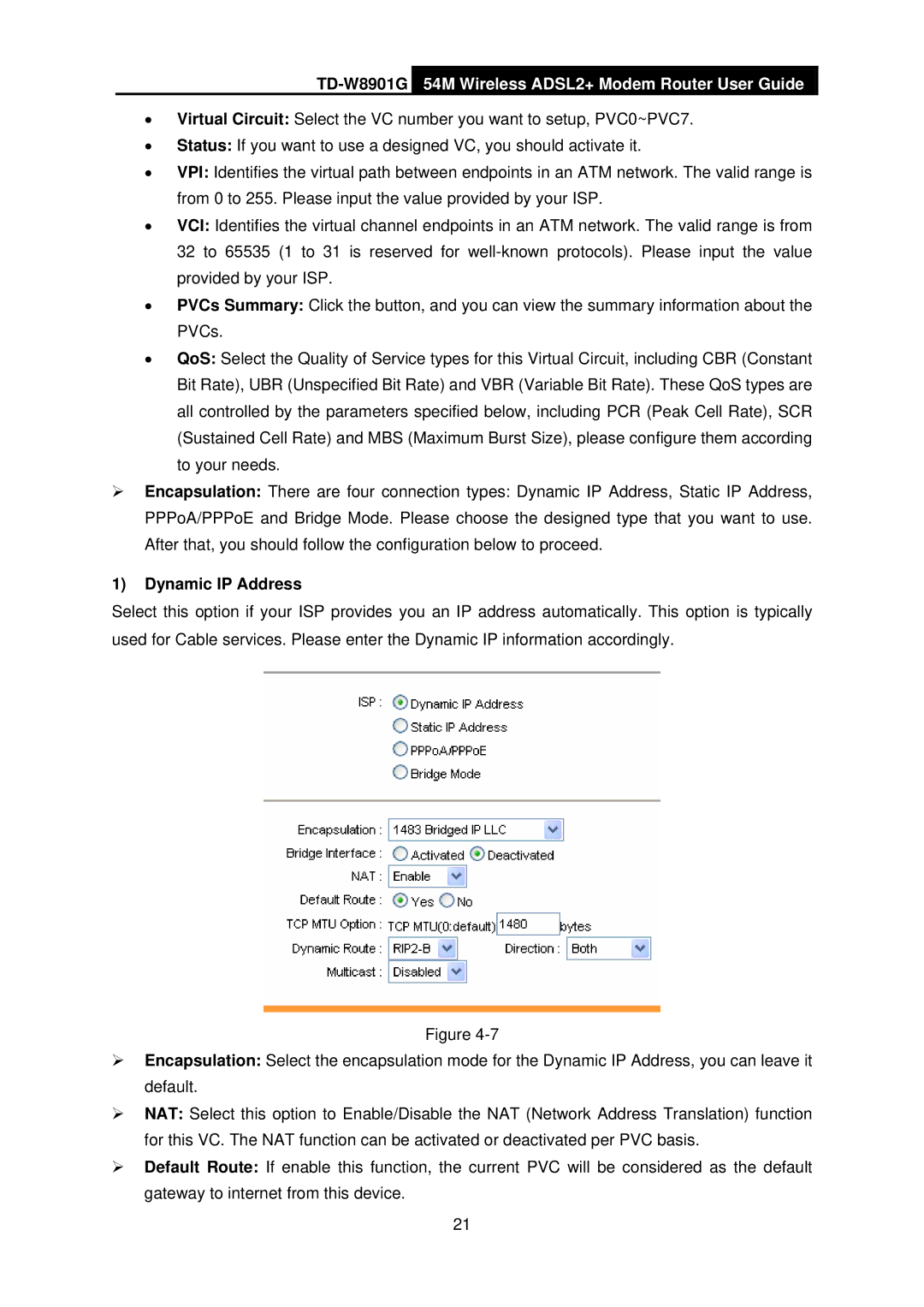
TD-W8901G 54M Wireless ADSL2+ Modem Router User Guide
•Virtual Circuit: Select the VC number you want to setup, PVC0~PVC7.
•Status: If you want to use a designed VC, you should activate it.
•VPI: Identifies the virtual path between endpoints in an ATM network. The valid range is from 0 to 255. Please input the value provided by your ISP.
•VCI: Identifies the virtual channel endpoints in an ATM network. The valid range is from 32 to 65535 (1 to 31 is reserved for
•PVCs Summary: Click the button, and you can view the summary information about the PVCs.
•QoS: Select the Quality of Service types for this Virtual Circuit, including CBR (Constant Bit Rate), UBR (Unspecified Bit Rate) and VBR (Variable Bit Rate). These QoS types are all controlled by the parameters specified below, including PCR (Peak Cell Rate), SCR (Sustained Cell Rate) and MBS (Maximum Burst Size), please configure them according to your needs.
¾Encapsulation: There are four connection types: Dynamic IP Address, Static IP Address, PPPoA/PPPoE and Bridge Mode. Please choose the designed type that you want to use. After that, you should follow the configuration below to proceed.
1)Dynamic IP Address
Select this option if your ISP provides you an IP address automatically. This option is typically used for Cable services. Please enter the Dynamic IP information accordingly.
Figure
¾Encapsulation: Select the encapsulation mode for the Dynamic IP Address, you can leave it default.
¾NAT: Select this option to Enable/Disable the NAT (Network Address Translation) function for this VC. The NAT function can be activated or deactivated per PVC basis.
¾Default Route: If enable this function, the current PVC will be considered as the default gateway to internet from this device.
21
